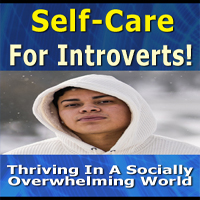


Overcoming Emotional Challenges And Their Lingering Shadows

Emotional challenges are an integral part of the human experience, and they can cast long shadows on our lives. These challenges often arise from various sources, such as traumatic experiences, personal setbacks, or mental health issues, leaving emotional scars that can affect our well-being. Overcoming these emotional challenges and the shadows they cast is a journey toward healing, resilience, and personal growth.
Understanding Emotional Challenges And Shadows
Emotional challenges encompass a wide range of experiences, including grief, anxiety, depression, trauma, and more. These challenges create emotional wounds that, if left unaddressed, can manifest as "shadows" - persistent negative emotions, thought patterns, or behaviors that linger and continue to affect our lives.
Acknowledge The Challenges
The first step in overcoming emotional challenges is acknowledging their existence. It can be difficult to confront your feelings, but denial or suppression only prolongs the healing process. Accept that you are facing emotional challenges and that it's okay to seek help and support.
Seek Professional Assistance
One of the most valuable steps in overcoming emotional challenges is seeking professional help. Therapists, counselors, and mental health experts can provide the guidance, strategies, and tools to navigate complex emotional issues. Their expertise can be pivotal in addressing the shadows these challenges cast.
Accept And Express Your Emotions
Emotional challenges often bring forth a flood of emotions, and it's essential to accept and express them. Whether through talking with a trusted friend, keeping a journal, or engaging in artistic expression, letting your emotions out can be cathartic and help you understand the depth of your feelings.
Develop Coping Strategies
As you confront emotional challenges, it's essential to develop healthy coping strategies. These strategies can include mindfulness, meditation, exercise, and stress-reduction techniques. Finding what works best for you can help you manage the emotional turmoil that often accompanies these challenges.
Self-Compassion And Self-Care
Practice self-compassion and self-care. Treat yourself with the same kindness and understanding that you would offer a friend facing a similar challenge. Taking care of your physical and mental well-being is a fundamental aspect of healing.
Forgiveness And Closure
Forgiveness can be a transformative part of healing. This involves forgiving others, as well as forgiving yourself. Forgiveness is not about condoning harmful actions but freeing yourself from the emotional burdens these challenges create.
Embrace Change And Personal Growth
Facing emotional challenges can be a catalyst for change and personal growth. As you navigate these struggles, you may discover inner strengths, resilience, and new perspectives. Embrace the opportunity for personal growth and the positive transformations that can result from these challenges.
Overcoming emotional challenges and their shadows is a journey of self-discovery and healing. By acknowledging the challenges, seeking professional assistance, accepting and expressing your emotions, developing coping strategies, and practicing self-compassion and self-care, you can take significant steps towards emotional well-being. Remember that everyone's journey is unique, and there's no set timeline for overcoming these challenges. The important thing is to take those first steps and move toward a brighter, emotionally healthier future, free from the lingering shadows of the past.
Unleashing Your Inner Productivity
 Set Clear Goals: A lack of clarity in your goals can contribute to procrastination. Break your ambitions into smaller, more manageable tasks, and set clear, specific goals. When you have a defined target, you're more likely to work towards it.
Set Clear Goals: A lack of clarity in your goals can contribute to procrastination. Break your ambitions into smaller, more manageable tasks, and set clear, specific goals. When you have a defined target, you're more likely to work towards it.
Prioritize Tasks: Not all tasks are created equal. Use the Eisenhower Matrix to categorize tasks as urgent, important, neither, or both. Prioritize the important tasks, and tackle them first to make the most of your productive hours.
Time Management: Effective time management is a powerful tool against procrastination. Use techniques like the Pomodoro Technique, time blocking, and to-do lists to structure your day and allocate time to specific tasks.
Minimize Distractions: Identify and eliminate or minimize distractions in your workspace. Turn off unnecessary notifications, create a clutter-free environment, and maintain a dedicated workspace for work or study.
Self-Discipline: Cultivate self-discipline by setting boundaries and developing a routine. Treat your commitments to yourself with the same respect you'd give to external obligations.
Reward System: Create a reward system for yourself. After completing a task or reaching a milestone, treat yourself to something enjoyable. This positive reinforcement can motivate you to tackle procrastination head-on.
Accountability: Share your goals and progress with a friend, mentor, or coach who can hold you accountable. Having someone to answer to can be a powerful motivator.


Unmasking Self-Doubt
 Origins Of The Impostor Phenomenon
Origins Of The Impostor Phenomenon
The origins of the impostor phenomenon can often be traced back to childhood experiences and early upbringing. These experiences may include overly critical parents, high expectations from caregivers, or instances of perfectionism. Educational environments, where students often face competition and rigorous standards, can also contribute to the development of the impostor phenomenon.
Manifestations Of The Impostor Phenomenon
The impostor phenomenon can manifest in various ways, including:
Perfectionism: Setting unrealistic standards for oneself and striving for unattainable perfection.
Self-Criticism: Engaging in negative self-talk and focusing on perceived failures or shortcomings.
Avoidance Of Challenges: Preferring to remain within one's comfort zone and avoiding situations that may expose one's perceived inadequacies.
Procrastination: Delaying tasks or decisions out of fear of failure.
Attributing Success To External Factors: Believing that any success is a result of external factors such as luck, timing, or the actions of others.
Difficulty In Accepting Praise: Feeling uncomfortable or undeserving of recognition for one's accomplishments.
Strategies For Overcoming The Impostor Phenomenon
Overcoming the impostor phenomenon is an ongoing journey that requires self-awareness and personal growth. Here are some strategies to help individuals unmask and conquer this self-doubt:
Recognize And Acknowledge It: The first step is to acknowledge that you are experiencing the impostor phenomenon. Understand that you are not alone in your self-doubt.
A Key To Success
 Self-confidence is not an innate trait; it can be nurtured and developed over time. It is a mindset that can be cultivated and strengthened through self-awareness, positive thinking, and self-empowerment.
Self-confidence is not an innate trait; it can be nurtured and developed over time. It is a mindset that can be cultivated and strengthened through self-awareness, positive thinking, and self-empowerment.
Here are a few key aspects that highlight the significance of belief in oneself:
Overcoming Obstacles: When individuals truly believe in themselves, they are more likely to view obstacles as temporary setbacks rather than insurmountable barriers. This perspective enables them to approach challenges with resilience and determination, as they trust in their ability to find solutions and keep moving forward.
Taking Initiative: Self-confidence gives individuals the courage to step out of their comfort zones and take risks. They are more willing to embrace new opportunities, set ambitious goals, and push the boundaries of their capabilities. Belief in oneself acts as a catalyst for personal and professional growth.
Positive Mindset: A strong sense of self-belief is closely intertwined with a positive mindset. Those who believe in themselves tend to focus on their strengths, accomplishments, and potential, rather than dwelling on their weaknesses or failures. This optimism not only boosts self-esteem but also attracts positivity and opportunities.
Resilience: Believing in oneself helps individuals bounce back from failures and setbacks. They understand that not every endeavor will result in success, but they maintain faith in their capacity to learn, adapt, and eventually achieve their goals. This resilience is a powerful asset in the face of life's inevitable challenges.
Influence On Others: Self-confidence is contagious. When you believe in yourself, you inspire and empower those around you.
The Art Of Juggling Career And Personal Life
 Reduced Stress: Maintaining a balance between work and personal life can alleviate stress and prevent burnout. It allows you to recharge and return to work with renewed energy.
Reduced Stress: Maintaining a balance between work and personal life can alleviate stress and prevent burnout. It allows you to recharge and return to work with renewed energy.
Improved Health: Work-life balance positively impacts physical and mental health. It can reduce the risk of health problems related to chronic stress and exhaustion.
Enhanced Productivity: Individuals who prioritize work-life balance are often more productive. They approach their work with focus and efficiency, knowing they have designated personal time.
Quality Relationships: Balancing work and personal life enables individuals to invest time in building and maintaining healthy relationships with family and friends.
Greater Fulfillment: Achieving a balance that allows for personal pursuits, hobbies, and leisure activities enhances overall life satisfaction and fulfillment.
Strategies For Achieving Work-Life Balance
Set Boundaries: Establish clear boundaries between work and personal life. Define specific working hours and disconnect from work-related communication outside those hours.
Prioritize And Delegate: Identify priorities in both your career and personal life. Delegate tasks when possible, and focus your time and energy on what truly matters.
Time Management: Implement effective time management techniques to make the most of your work hours. Use to-do lists, calendars, and productivity tools to stay organized.
Self-Care: Prioritize self-care, including exercise, relaxation, and quality sleep. Taking care of your physical and mental health is essential for work-life balance.






The Key Factors To Achieving Your Goals
 2. Resilience And Perseverance
2. Resilience And Perseverance
Resilience is the ability to bounce back from setbacks and continue pursuing your goals. Success often involves facing challenges, failures, and adversity. Developing resilience and the willingness to persevere through difficult times is essential. Remember that failure is a stepping stone to success.
3. Self-Discipline
Self-discipline is the ability to stay committed to your goals and take consistent action, even when motivation wanes. It involves making sacrifices and maintaining a strong work ethic. Cultivating self-discipline helps you overcome procrastination and stay on track.
4. Continuous Learning
Successful individuals are lifelong learners. They embrace opportunities for growth and improvement. Keep acquiring new knowledge and skills related to your field and personal development. Continuous learning enables you to adapt to changing circumstances and remain relevant in your endeavors.
5. Resilient Mindset
A resilient mindset, often described as a growth mindset, involves viewing challenges as opportunities for growth and learning. It's the belief that abilities and intelligence can be developed through effort and experience. A resilient mindset enables you to embrace setbacks and learn from them, making you more adaptable and optimistic.
6. Networking And Relationships
Building and maintaining strong relationships are critical to success. Networking allows you to connect with others who can offer support, guidance, and opportunities. It's not just about what you know but also who you know.
Navigating Life's Path To Self-Discovery And Growth
 The personal journey is not a linear or uniform process. It encompasses the various phases and transitions that make up one's life, from childhood and adolescence to adulthood and beyond. It is a tapestry of experiences, relationships, and personal reflections that shape who we become.
The personal journey is not a linear or uniform process. It encompasses the various phases and transitions that make up one's life, from childhood and adolescence to adulthood and beyond. It is a tapestry of experiences, relationships, and personal reflections that shape who we become.
One of the central aspects of the personal journey is self-discovery. As we navigate the ups and downs of life, we gain insights into our values, strengths, weaknesses, and aspirations. This self-awareness is an essential foundation for personal growth, as it empowers us to make informed decisions and to align our choices with our true selves.
Throughout our personal journey, we encounter challenges and obstacles. These challenges may come in the form of difficult circumstances, setbacks, or even failures. However, it is through these trials that we have the opportunity to learn, adapt, and grow. Each obstacle presents a chance to develop resilience and gain valuable life lessons.
The personal journey is also marked by moments of joy, fulfillment, and personal achievements. Celebrating these victories, no matter how big or small, reinforces our sense of purpose and motivation. These moments of triumph encourage us to continue striving for our goals and ambitions.
Another significant aspect of the personal journey is relationships. The people we meet, befriend, and love along the way play a vital role in shaping our experiences and influencing our growth. Building meaningful connections with others can be a source of support, guidance, and companionship on our journey.
Self-reflection is a valuable tool during the personal journey. Taking time to pause and examine our choices, beliefs, and values can lead to personal revelations and growth. Self-reflection allows us to better understand the direction in which our journey is taking us and make adjustments as needed.